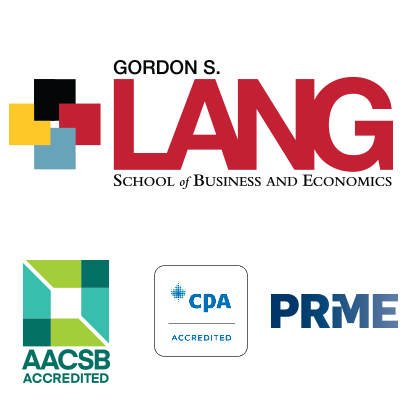
Over the last two years, Professor Trent Tucker’s MGMT*1000 students have raised almost $20,000 for the WildHearts charity [1] through Micro-Tyco [2], a business challenge that invests money made by participants into micro-loans for entrepreneurs in developing countries.
The University of Guelph was the first organization in North America to take part in Micro-Tyco and the experience has given students an opportunity to learn about what it takes to transform an idea into a successful business.
It is just one example of Tucker’s commitment to teaching students about the realities of the business world, but teaching wasn’t always his career focus. It was only after a six-month process evaluating his work as a consultant that he chose to change direction and enter academia.
In this Q&A, Tucker speaks to his career transition, the success of Micro-Tyco and his crowdfunding initiative to bring Lego Serious Play to U of G.
What do you find most rewarding about teaching?
I enjoy the variety and opportunities for creativity that teaching offers. Seeing student success and receiving emails from graduates telling me how my teaching has helped them - that’s the reward.
It’s hard to find another job where you can work with energetic and bright people, draw out their creativity and see what new ideas they can come up with. Everyday is different and you never know what is going to happen.
What inspired you to become a professor after working in industry?
I previously worked in Calgary as a consultant. I made good money, but I wasn’t happy with my job. I read a book called The Pathfinder by Nicholas Lore and after six months of keeping a journal of the things I did and did not enjoy about my work, I kept coming back to teaching. I took an opportunity to teach at Sheridan College in systems analysis and design. I thought the work was great and I had fun. After Sheridan, I taught at Conestoga, followed by Laurier’s business program.
It was really a big risk to leave a stable career for teaching contracts and the path to my current career certainly wasn’t linear, but it was worth it.
This is the second year MGMT*1000 has participated in Micro-Tyco. How did this idea develop?
I was looking to give students an authentic and hands-on learning experience. Micro-Tyco had all the right things: real money changing hands, success or failure was easy to identify and its charitable component aligned with our emphasis on educating leaders for sustainable world. So I sent an email to Micro-Tyco and WildHearts founder Mick Jackson, who was trekking in Guatemala with a group of Canadians at the time, and that’s how it all started.
What would you say are the biggest lessons students take from Micro-Tyco?
This challenge teaches students that they can turn a one-dollar investment into more dollars. They push themselves out of their comfort zones and gain confidence in the fact that they can make their ideas work. They also learn how to adapt to changes quickly, and build an understanding of what their target market wants.
What kind of feedback have you received?
Many thought it was going to be easy, and while it ended up being a lot more work than expected, it was also very rewarding. I think it will be interesting to see what happens in the long term. Some students talked about competing in Micro-Tyco again or continuing their business ideas after the challenge.
You recently started a crowdfunding initiative to bring Lego Serious Play into the classroom. How do you think this will benefit students?
I’ve used Lego in the classroom multiple times. I see the pedagogical advantage of building something, making it tangible and applying theoretical concepts to it. Fortune 500 companies hire Lego Serious Play consultants to come into their business and help them with things like idea generation and understanding business problems.
Employers tell us that U of G graduates are very collaborative and work well in teams. I think this would help reinforce those traits. It’s innovative, creative and hands-on.
Learn more about Micro-Tyco [3] and the WildHearts charity [1].
